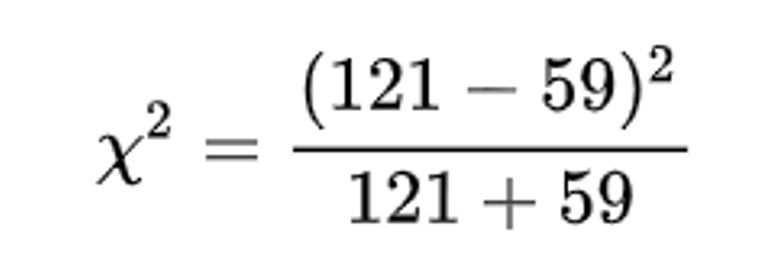
Remember that famous Spider-Man meme where two Spider-Men are pointing at each other, yelling “You’re me!”? That’s basically the spirit of the McNemar Test. It’s a statistical tool that checks whether the same group of people changes their answers under two different conditions.
Think of it like this: yesterday everyone swore bubble tea was the best, but today half of them suddenly insist black coffee is the only way to survive finals. The McNemar Test is the referee here—it counts how many people actually flipped sides and asks, “Okay, is this change big enough to matter, or is it just random mood swings?”
The McNemar Test works on paired data. The total numbers don’t matter as much as the people who changed their minds.
People who said “yes” before and still say “yes” after → not interesting.
People who said “no” before and still say “no” after → also not interesting.
The stars of the show? Those who said “yes” before and “no” after, and those who said “no” before and “yes” after. The test compares these two groups. If the difference between them is large, it means the change is real, not just random noise.
In clinical research this is super important. Suppose a study tests whether a new drug actually helps with a disease. A total of 314 patients are observed both before and after treatment. Here’s the data:

Here’s what’s going on: 101 stayed sick before and after. 33 stayed healthy before and after.
121 improved (from sick → healthy). 59 worsened (from healthy → sick).
Now, McNemar steps in with this formula:

That comes out to 21.35, which is way too extreme to happen by chance (p < 0.001). Translation: the drug worked—the number of patients who got better is significantly higher than those who got worse.
In medicine (or in evaluating machine learning models), it’s not enough to just report an overall accuracy. What really matters is whether the changes—improvements or mistakes—are meaningful and consistent. The McNemar Test is a simple way to check if those differences are statistically real.
Now let’s use McNemar Test in a sentence.
Serious: In a clinical trial, the McNemar Test showed that significantly more patients improved after treatment than worsened, proving the drug’s effectiveness.
Less Serious: Yesterday my friend swore pizza was the best food on earth. Today she switched to sushi. According to McNemar, this isn’t just random—it’s a statistically significant betrayal.
See you in the blogosphere!
Nathan Liu
